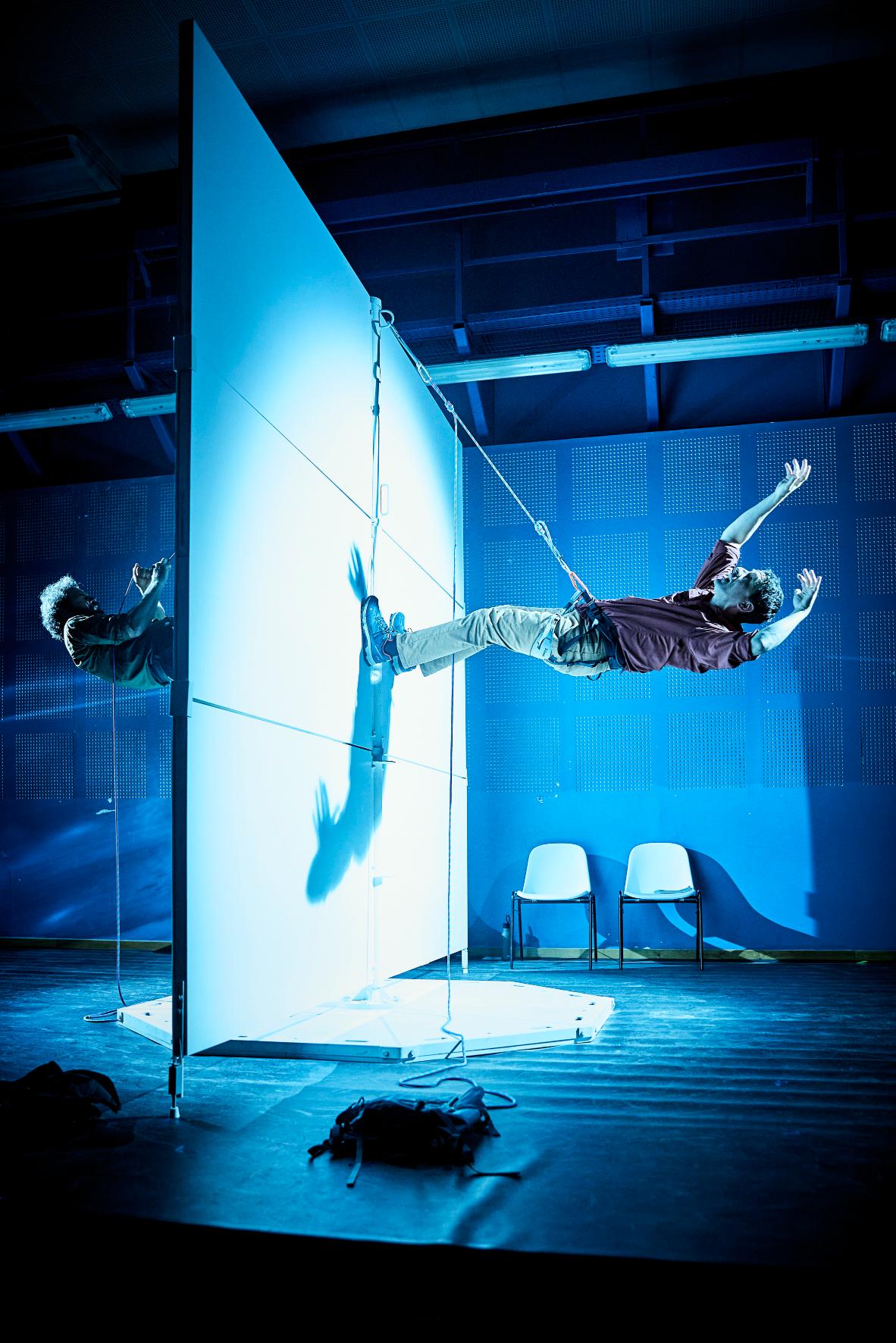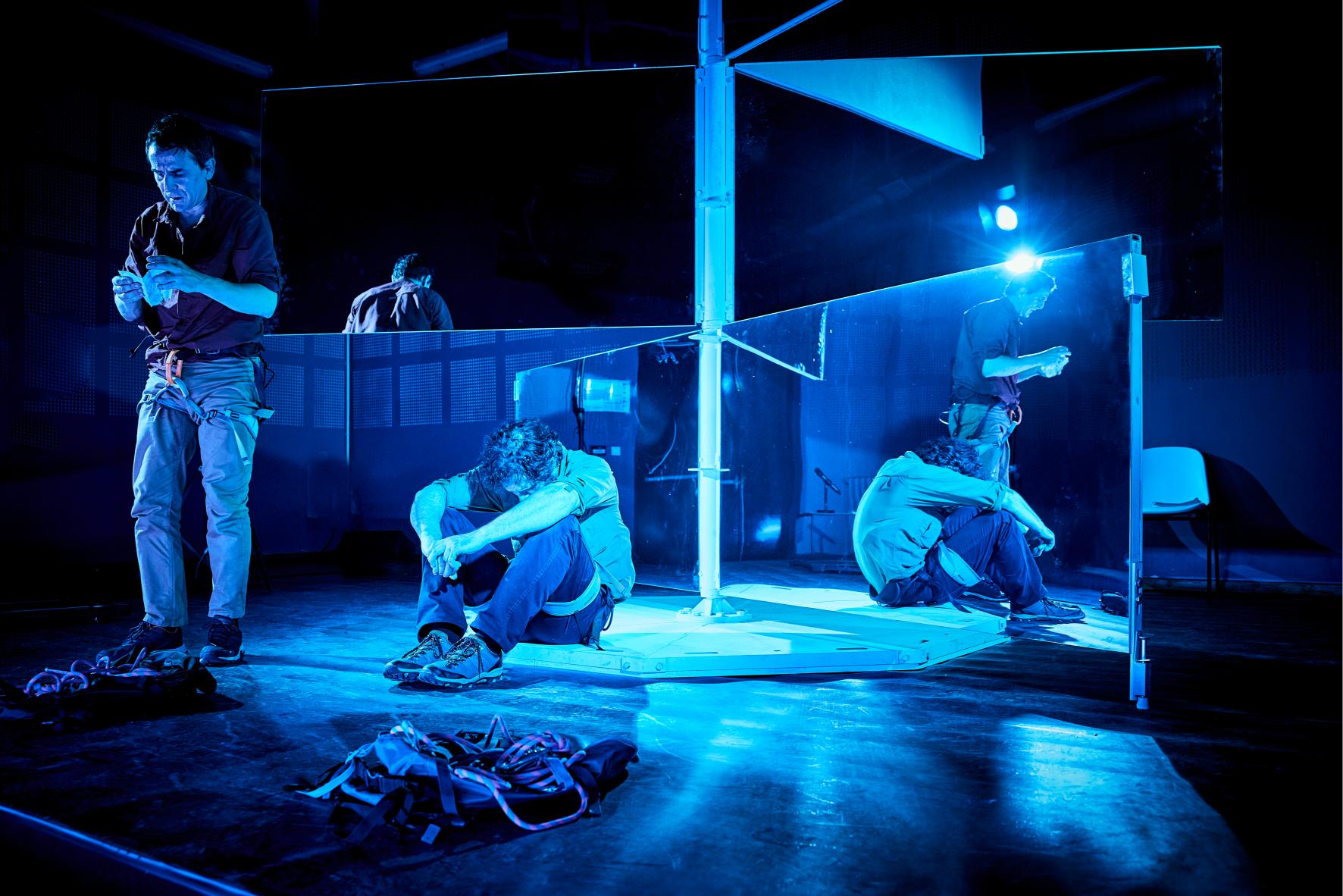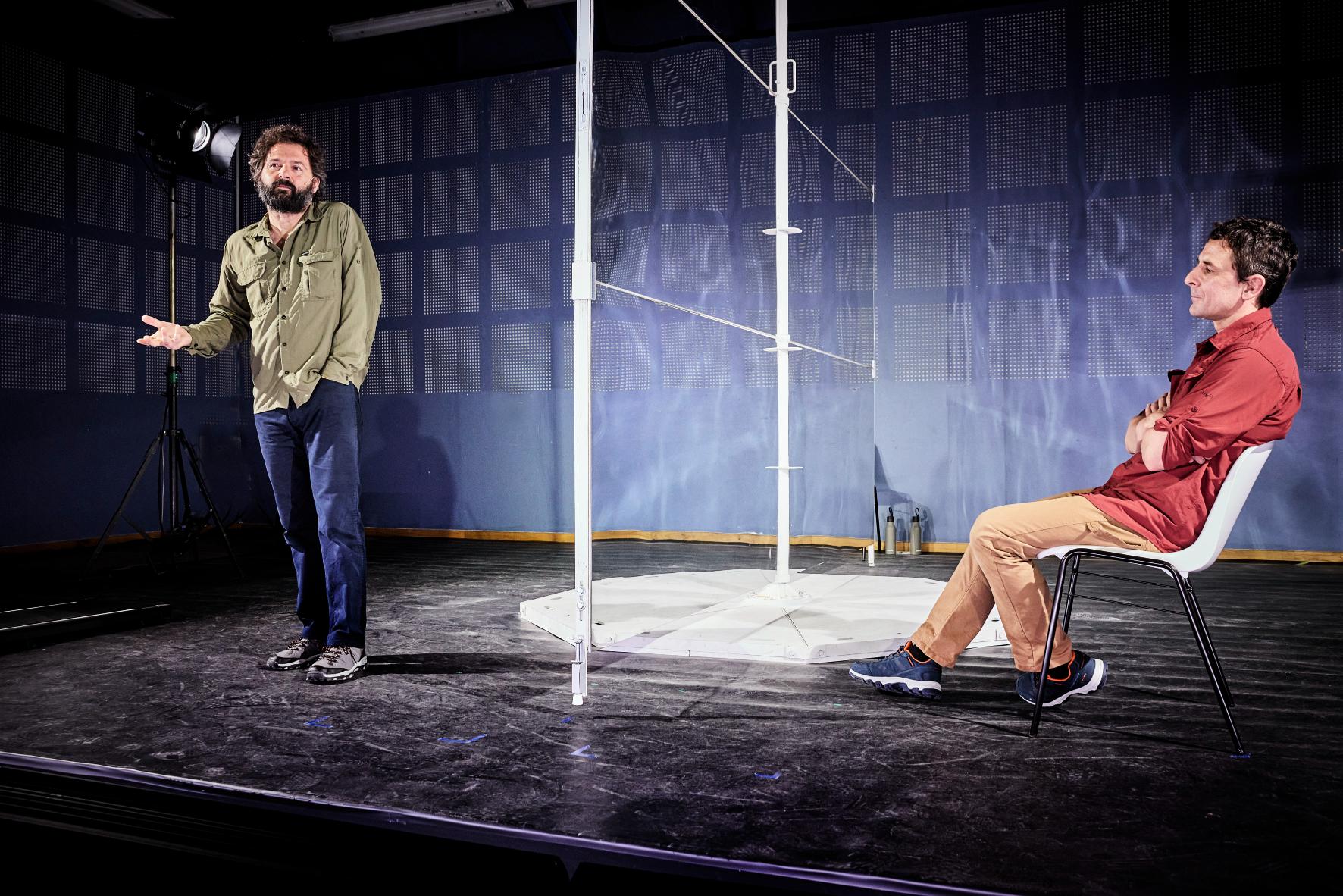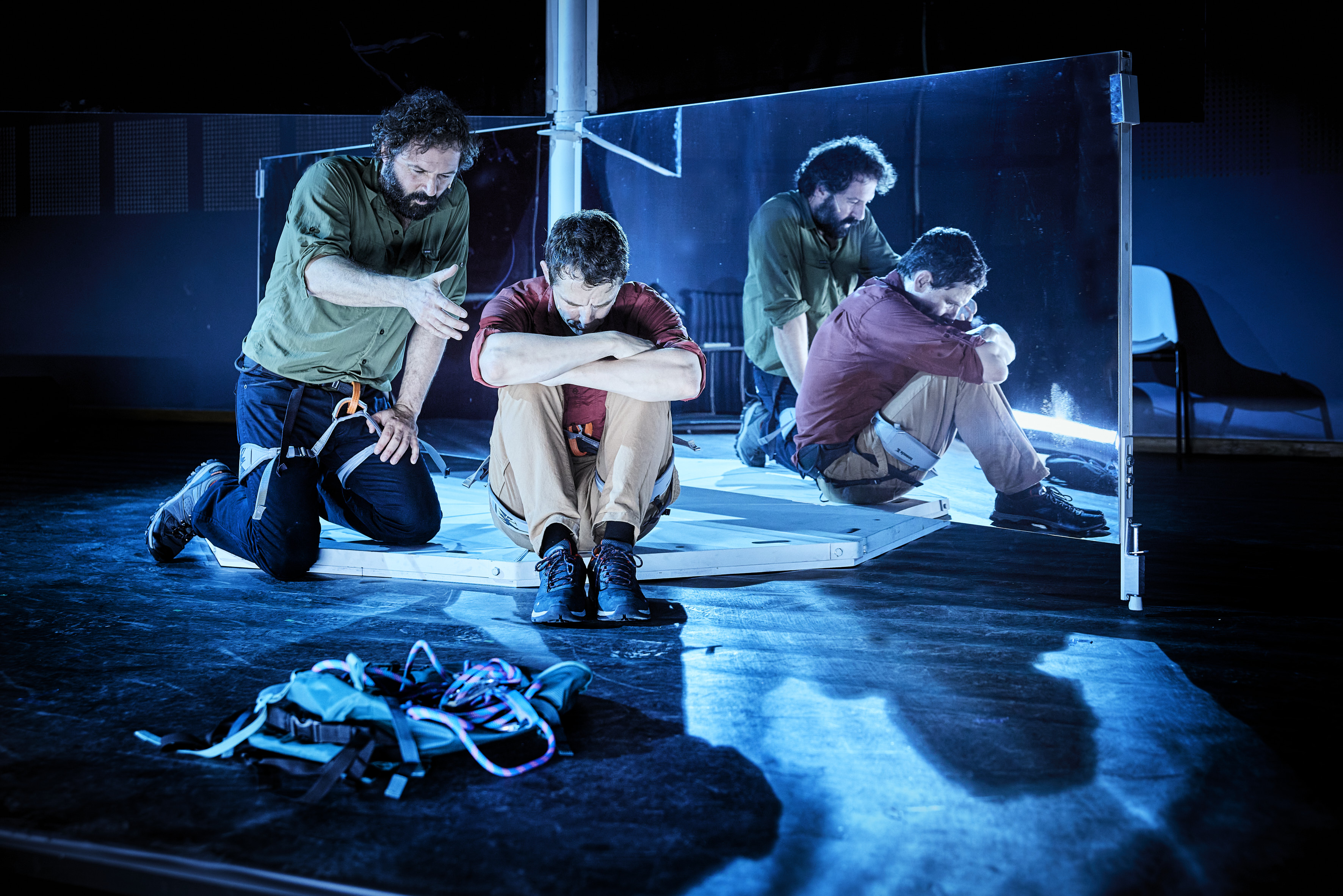PH: © Christophe Raynaud / Une ombre vorace (Festival D’ Avignon)
PH: @Jorge Macchi
A voracious shadow
De Mariano Pensotti / Grupo Marea
Jean Vidal is a climber, son of a famous mountaineer who disappeared trying to reach the summit of Annapurna in 1989, when he was a little boy. In 2017, at the age of 40 and before retiring, Jean wants to try to complete the climb in which his father died. But in doing so something absolutely unexpected happens to him and makes his story famous.
In 2021, a film is shot about what happened to Jean Vidal. Michel Roux, an actor whose career has been a bit stagnant in recent years, is called to play the role. Making the film will change his life and make him discover that his biography has more than one point in common with Vidal’s story.
During the play, we see Jean Vidal and Michel Roux on stage together for the first time. Each one represents his version of the experience. Both stories are narrated in an interspersed manner, highlighting the parallels and differences between reality and the fictional representation of the facts.
About the piece:
In recent times I found myself obsessed by the increasingly frequent news of climbers who disappeared decades ago and whose bodies are appearing in mountains around the world due to the melting of ice caused by climate change. It is as if nature, violated to the extreme, is returning the dead that for so long it has hidden from us. In the last five years, in places as dissimilar as Switzerland, the Himalayas, Canada and Argentina, bodies frozen in time became visible as snow and glaciers disappeared.
Climbing a mountain was always much more than a whimsical physical effort of climbing rocks. It was always a metaphor for something else: a change of point of view, a look beyond, an ascent towards the sky, a different link with the challenging side of nature. Inevitably, in recent times, capitalism has made climbing into something very different and also highly metaphorical: a predatory and competitive tourism full of sponsors, where it is common to let the weak die along the way in pursuit of reaching the top.
Petrarca is considered the father of mountaineering. His book “Ascent of Mont Ventoux” narrates his ascent of Mont Ventoux in 1336. It is a fascinating book for many reasons, especially relevant to our work because although Petrarca presents his expedition as absolutely real, it is proven that it was fictional, it did not happen beyond the imagination of the Italian writer. And something else, he writes that he climbed the mountain as one person and came down as another. It is often said that, regardless of the personal implications in his life, Petrarca went up the mountain as a medieval man and came down as a Renaissance man. The future promoter of a humanism that, although rightly questioned in many aspects, would not seem a bad idea to recover for the dark contemporary world.
A Voracious Shadow is also a story of fathers and sons. Missing fathers whose children mythologize and present fathers whose children despise. Just as climate change is melting the world’s ice, time seems to undo the myths that families forge around them.
In A Voracious Shadow we see only two people on stage: a real person to whom something extraordinary has happened and an actor who played that person and his story in a movie. Both tell us and represent their experiences, at times interacting with each other, generating an exchange between the original and its reflection.
I have always been fascinated by films that portray the stories of people who are still alive. What happens to those people when they see their fictional portrait? what happens to the actors who play the real person? to what extent are both lives modified? Thinking about how fiction transforms reality is also a way to reflect on how a life is told, how we narrate ourselves.
A Voracious Shadow is, precisely, a project that investigates the format of the “fictional documentary story”, something that is presented to the audience as real but whose fictional component is almost total.
Cast:
Cédric Eeckhout, Élios Noël (French version)
Manuel Harder, Sebastian Klein (Austrian version)
Diego Velazquez, Patricio Aramburu (Argentinean version)
Text and direction: Mariano Pensotti
Set and costume design: Mariana Tirantte
Dramaturgy: Aljoscha Begrich
Music and sound: Diego Vainer
Lighting: David Seldes
Artistic Production: Florencia Wasser
Artistic collaboration: Laurent Berger
Assistant directors: Juan Francisco Reato
Production Festival d’Avignon (for the Itinerance Project)
Coproduction Wiener Festwochen (Vienne), Théâtre du Bois de l’Aune/Biennale d’Aix-en-Provence, Éclat-Centre National des Arts de la Rue et de l’Espace Public-Aurillac, CCAS les activités sociales de l’énergie, La Vignette Scène conventionnée Université Paul-Valéry (Montpellier), Théâtre de Grasse, Théâtre du Champ au Roy (Guingamp)




